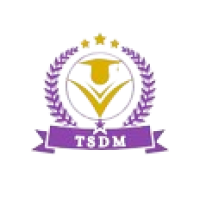Introduction :- SEO in Digital Marketing
Search Engine Optimization (SEO) is an essential strategy in the dynamic field of digital marketing that increases online visibility and drives natural traffic to websites. But there isn’t a one-size-fits-all strategy for SEO in digital marketing. It includes a range of strategies designed to satisfy various audience demands and commercial objectives. We’ll look at the many kinds of SEO tactics that marketers employ in this blog post to enhance search engine rankings and maximize their online presence.
On-Page SEO
The goal of on-page SEO is to improve a single web page’s search engine rankings and draw in relevant visitors. Important elements of on-page SEO consist of:
. Keyword optimization is the deliberate placement of pertinent terms in headers, meta tags, URLs, and page content.
. material Quality: Disseminating insightful, high-caliber material that speaks to the target audience’s needs and fulfills their search intent.
. Creating catchy meta tags and descriptions that effectively convey the content of the page and encourage users to click through.
. Internal Linking: Establishing a network of internal links between related pages on the website to improve navigation and distribute link equity.
Off-Page SEO
Off-Page SEO refers to actions taken off the website to improve search engines’ perceptions of its authority, relevance, and trustworthiness. Important off-page SEO tactics consist of:
. Link building is the process of obtaining backlinks from reputable and pertinent websites via content syndication, influencer outreach, and guest blogging.
. Using social media platforms to advertise content, raise brand awareness, and draw in social signals that improve search engine rankings is known as social media engagement.
. Online reputation management is the process of keeping an eye on and controlling brand mentions, reviews, and other online content. In order to develop a favourable online image and win over people’ and search engines’ confidence.
Technical SEO
The goal of technical SEO is to enhance a website’s crawlability, indexability, and general performance in search engine results by optimizing its technical elements. Important components of technical SEO are:
. Website speed optimization: Using browser caching, CSS and JavaScript file minification, and image optimization to ensure quick page loads.
. Mobile-Friendliness: Creating responsive and mobile-friendly websites to offer a consistent user experience on various devices.
. Structured Data Markup: By using structured data markup, such as Schema.org. Web pages’ content and context can be better understood by search engines.
. XML sitemap creation and robots.txt file configuration: XML sitemaps help search engines explore websites more easily. While robots.txt files specify which pages should be indexed.
Local SEO
Optimizing a website for local search queries is the goal of local SEO. Especially for companies that cater to a specific regional market. A few essential components of local SEO are:
. Optimizing Google My Business listings to show up in local search results and Google Maps involves claiming and improving these listings with correct business information, images, and reviews.
. Keeping NAP (Name, Address, Phone Number) information consistent throughout local listings. Online directories, and reference sources for local citations.
. Creating location-specific material, such as blog posts, landing pages, and service pages. With the goal of addressing local customer demands and targeting local keywords is known as “localized content creation.”
By understanding and implementing these various types of SEO in digital marketing strategies, businesses can enhance their online visibility, attract targeted traffic, and ultimately achieve their digital marketing goals.
I hope this version meets your expectations! Do not hesitate to contact me if you require any additional changes or if you have any special demands.

